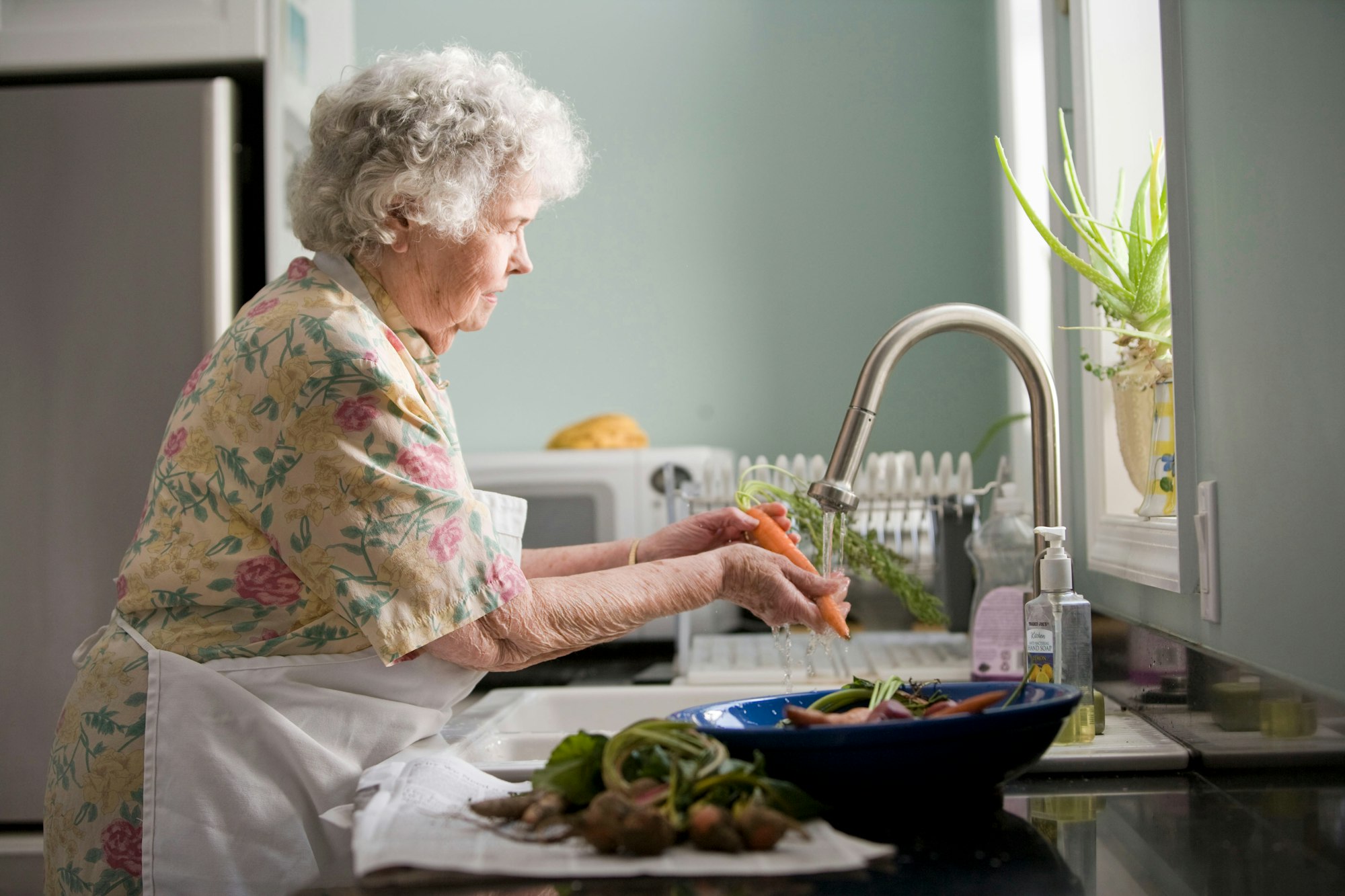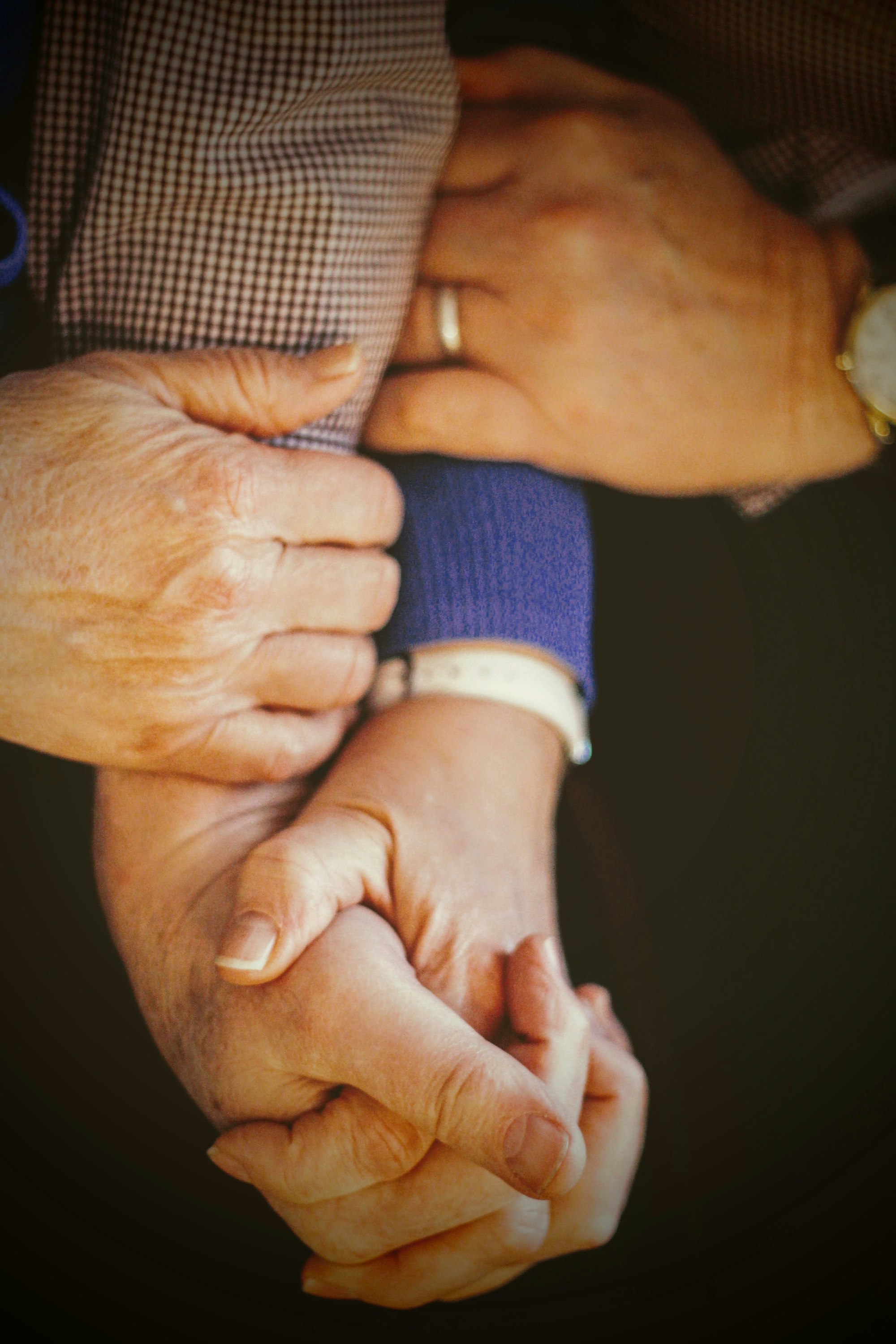Becoming a Primary Caregiver: Basics to Get Started
One in five caregivers provided unpaid care to adults in need. However, if you don't have experience in elder care, it can be challenging to navigate. That's why we've compiled this basic guide for family caregivers to give you an overview of the caregiving world.

With the increasing importance of family and primary caregivers, it's likely that you may take on this role at some point. Last year alone, nearly one in five caregivers provided unpaid care to adults in need. However, if you don't have experience in elder care, it can be challenging to navigate. That's why we've compiled this basic guide for family caregivers to give you an overview of the caregiving world.
Types of Caregivers
In the realm of caregiving, there are two main categories: informal caregivers (unpaid) and formal caregivers (paid with training). Your caregiving team may include both family caregivers and trained professionals who assist with senior care in various ways.
Family Caregivers
This category includes adult children, friends, or neighbors of the person in need of care. Family caregivers perform essential tasks like housekeeping and medication reminders to support seniors in their daily activities.
Professional Caregivers
Professional caregivers receive payment for providing care either at home or in a facility. They offer medical or non-medical assistance based on their training and expertise.
Home Health Care Caregivers
Licensed medical professionals like nurses and therapists fall into this category. They specialize in skilled care services such as mobility restoration and rehabilitation.
Non-Medical In-Home Caregivers
These caregivers assist family caregivers with tasks like meal preparation and yard work, providing valuable support without medical qualifications.

Hospice Caregivers
Seniors with life-limiting conditions often choose to stay at home near their families. Hospice caregivers offer end-of-life care and pain relief for symptoms associated with their condition.
Volunteer Caregivers
When primary caregivers need a break, volunteer caregivers step in to provide non-medical support like light housekeeping and companionship. I recommend you create a Care Team Partner Support Group. Building a team will allow you, the primary caregiver to have much needed support along your caregiving journey. Care team partners provide practical assistance, not actual hands on care. We have created the How to Become a Patient Care Advocate course and manual to help you learn how to build that team.
Independent Caregivers
Independent caregivers are professionals who work directly for a family caregiver instead of an agency. They offer a range of services from personal care to medical care, ensuring the well-being of seniors in need.
Knowing Senior Housing Options
As a primary caregiver, it's crucial to be aware of senior housing options that provide a higher level of care. The best option depends on factors such as mental and physical capacity, preferences, and the amount of daily assistance required by your aging loved one.
Creating a Safe Home Environment for the Elderly
Many caregivers are unaware of the top safety issues faced by seniors who age at home. Slips and falls are particularly common accidents.
However, you can prevent injuries by focusing on three key safety areas:
Sufficient Lighting: Ensure that entryways and walkways are well-lit for better visibility.
Clutter-Free Floors: Secure carpets and use non-slip rug pads or grippers over hard surface floors. In the bathroom, use nonslip mats and install grab bars, hand-held showerheads, and shower chairs for added support. Additionally, consider adding railings and non-adhesive strips on stairs. Fall prevention is important as a person ages.
Accessibility to Essentials: Place commonly used items within reach to eliminate the need for chairs or step stools.

Understanding Legal Documents for Senior Protection
A primary caregiver must be familiar with various legal documents that can protect their senior parents interests. It's crucial to consult a trustworthy attorney to assist in preparing these documents:
Will: A binding legal document that outlines how a senior's estate should be distributed after their death.
Advanced Directive or Living Will: A legal document that protects seniors if they become incapacitated.
Durable Power of Attorney: A legal document designating someone to make financial, legal, and healthcare decisions on behalf of a senior.
Promoting Senior Happiness
Many seniors experience declining health which often leads to depression during their golden years. As a primary caregiver, you can implement simple strategies to improve their mood:
Address Sleeping Problems: Identify and address any underlying conditions that may be interfering with a senior's sleep.
Encourage Engagement in Physical Activities and Unique Hobbies: Arts, music, and other activities can provide joy and fulfillment for seniors.
Serve Nutritious Meals: Make sure to include fiber-rich grains and lean protein in their diet.
By following these tips, primary caregivers can provide exceptional care while ensuring the happiness and well-being of their senior loved ones.

Plan for the future and get the proper legal paperwork in order.
Getting Organized and Planning for Future Care Needs
Identify future care needs
This is not an easy thing to accept, but as we age, our needs for care change. Many older seniors have a slow decline. It is important that when pursuing a written contract that you talk with the doctor about the aging senior and have an open and honest discussion about their future health care needs.
You may want to consult with an eldercare consultant or a geriatric case manager to help you determine what care may be required in the future. We have created the New to Caregiving course.
How to Get Paid as a Family Caregiver
Consider the “care giver” role as a job. When developing a formal contract, it is important to consider things that you would consider in a job outside the home. You will need to determine an hourly rate or a salary amount. Many long term care insurance providers do a yearly report on the costs of services for home care aides in each state. Investigate the costs of services you will provide by searching on the web for the long term care study report for the year you are going to be providing services. Both Met Life and Genworth companies publish yearly reports.
When developing the family caregiver contract, identify what you, as a primary caregiver will be able to provide and able to handle. You must be able to say, “I cannot take care of you when you reach this point.” This will give the aging senior a clear understanding of what they can expect from you when providing care.
It will also prepare them for a time when they may have to be admitted to a nursing home. It is also important to note here, that there may come a time when you, the caregiver, will agree to oversee the care and hire outside caregivers, to provide the care you cannot, to keep the aging senior at home. You can put this into the contract and make it an option for the future.
Consult an Elder Care Law Attorney
It is important to note that you cannot develop a family caregiver contract for services already provided. In other words, you cannot retroactively be paid for services to protect the present assets. There are very strict rules and regulations that must be followed, and having the proper paperwork in order will alleviate and prevent unnecessary care giver stress in the future.
A formalized contract should be very specific about the responsibilities of the caregiver and the expectations of the care recipient. For this purpose, having an elder care law attorney will be beneficial.
The attorney can help the family approach this in a business-like manner. In doing so, all parties that are involved will have a clear understanding of the quality of care and the costs for the care.

Keeping family members informed
Having a family contract in place, will also allow those family members that do not want to or are unable to provide care, aware of how the finances are being handled.
For the family member , that becomes the primary caregiver, and provides a majority of the care, it can decrease the feelings of resentment, frustration and anger that often build up with uninvolved siblings and extended family members.
The family care giver that takes on the majority of the responsibility can benefit from the long and tedious hours they provide care.
When it comes to money and how the assets of the aging senior are being spent, families become unraveled. Jealousy and anger are not uncommon for family caregivers to endure. Having a formalized care giver contract can allow the aging senior to utilize their assets to remain at home, receive quality care and financially reward the individual that is providing that care. This can provide the family caregiver with protection, should the other family members pursue legal action after the aging senior is deceased. It is unfortunate, but it does happen more often than you think.
Caregiver stress can be avoided by taking breaks and allowing time for the caregiver to rejuvenate. It is important to include in the contract how time off will be handled and who will provide care during that time.
It is important to determine how you as an aging baby boomer and senior caregiver are paid and who will be writing the check. Consulting how taxes will be paid is another step in this process you should explore prior to implementing the contract.
We are living longer and healthier than ever before. Providing care for an older senior can last from a few months to a few years. Taking the steps to prepare and plan ahead are the keys to success for today’s aging baby boomers.
To learn more about “Is a Family Caregiver Contract Necessary” click here
Practice Self Care
Providing care for seniors can be exhausting, especially when you're juggling it alongside your day job and other responsibilities. It's vital to recognize the impact it may have on your mental health and seek support if needed.
Here are some valuable self-care tips to help you manage your stress as a caregiver:
Recognize your limits and take breaks when necessary. Consider hiring a caregiver to provide respite care.
Maintain a healthy lifestyle by prioritizing a balanced diet, regular exercise, and sufficient sleep.
Explore different stress coping mechanisms. Consider seeking counseling or joining a support group for caregivers.
Accept that negative feelings are normal. It's okay to sometimes feel frustrated with the person you're caring for.
Be mindful of the long-term financial implications of caregiving. Learn how to manage your finances and explore government programs that can assist with caregiving costs.
Remember, being a primary caregiver is a gift, but it's crucial to prioritize your own well-being throughout the journey. Seek out available resources and prioritize self-care.
Check out the Stress Buster Course
Our Resources section can help you find the information and tools that you need. We have courses, videos, checklists, guidebooks, cheat sheets, how-to guides and more.
You can get started by clicking on the link below. We know that taking care of a loved one is hard work, but with our help you can get the support that you need.
Click here to go to Resources Section now!



